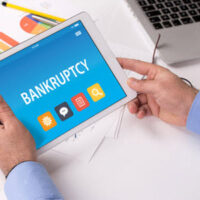When Do Debtors Receive A Discharge In Bankruptcy?

If you are considering bankruptcy — either for yourself as an individual or for your business — you may be wondering: when do debtors receive a discharge in bankruptcy? Generally speaking, discharges occur at the very end of a bankruptcy case, and that timeline can vary significantly depending upon the type of bankruptcy you are filing for in South Florida. Yet it is also important to know that there are some circumstances in which discharges do not occur according to U.S. bankruptcy law. Our West Palm Beach bankruptcy lawyers can provide you with additional information, and we can speak with you today if you have questions about filing for bankruptcy and how the process will work.
What is a Discharge in a Bankruptcy Case?
Before we discuss when debtors receive discharges in bankruptcy cases (and when they do not), it is important to understand what a “discharge” means according to bankruptcy law. As the United States Courts clarifies, a discharge in a bankruptcy case is “a permanent order prohibiting the creditors of the debtor from taking any form of collection action on discharged debts, including legal action and communications with the debtor, such as telephone calls, letters, and personal contacts.” Further, the “bankruptcy discharge releases the debtor from personal liability” for the debts that are discharged.
Reorganization Bankruptcy Discharges for Individuals and Businesses
Both individuals and businesses can be eligible to have their debts discharged in a reorganization bankruptcy, which usually means a Chapter 13 bankruptcy for individuals, or a Chapter 11 bankruptcy or Subchapter V bankruptcy for businesses, and sometimes a Chapter 12 bankruptcy. The timing for the discharge depends on the specific type of reorganization bankruptcy. Once the debtor completes the terms of the repayment plan, bankruptcy law says that a court will usually grant the discharge “as soon as practicable.” Both Chapter 13 and Chapter 12 bankruptcies have lengthy repayment plan periods lasting around three to five years, which means that a discharge will not come for that amount of time. Chapter 11 and Subchapter V bankruptcies have shorter repayment plan timelines, so the discharge usually occurs after anywhere from six months to a couple of years.
Chapter 7 Bankruptcy Discharges for Individual Debtors
While both individuals and businesses can file for Chapter 7, only an individual gets a discharge in a Chapter 7 case. Since this is a type of liquidation bankruptcy, the individual debtor needs the discharge to start fresh financially. With a business, since the business is closed and all assets are liquidated, there is no need for a discharge.
When Discharges Do Not Occur
There are some cases in which discharges ultimately do not occur, such as partial discharges (when certain debts are nondischargeable), or when a bankruptcy case is dismissed. To learn more, you should talk with a lawyer.
Contact Our West Palm Beach Bankruptcy Attorneys
Do you have questions about filing for bankruptcy and having debts discharged or eradicated for yourself or your business? Do not hesitate to get in touch with an experienced West Palm Beach bankruptcy lawyer at Kelley Kaplan & Eller to find out more about specific types of bankruptcy for which you could be eligible. Our firm can assess your circumstances and can begin assisting you with your bankruptcy case today.
Sources:
law.cornell.edu/uscode/text/11
uscourts.gov/services-forms/bankruptcy/bankruptcy-basics/discharge-bankruptcy-bankruptcy-basics



